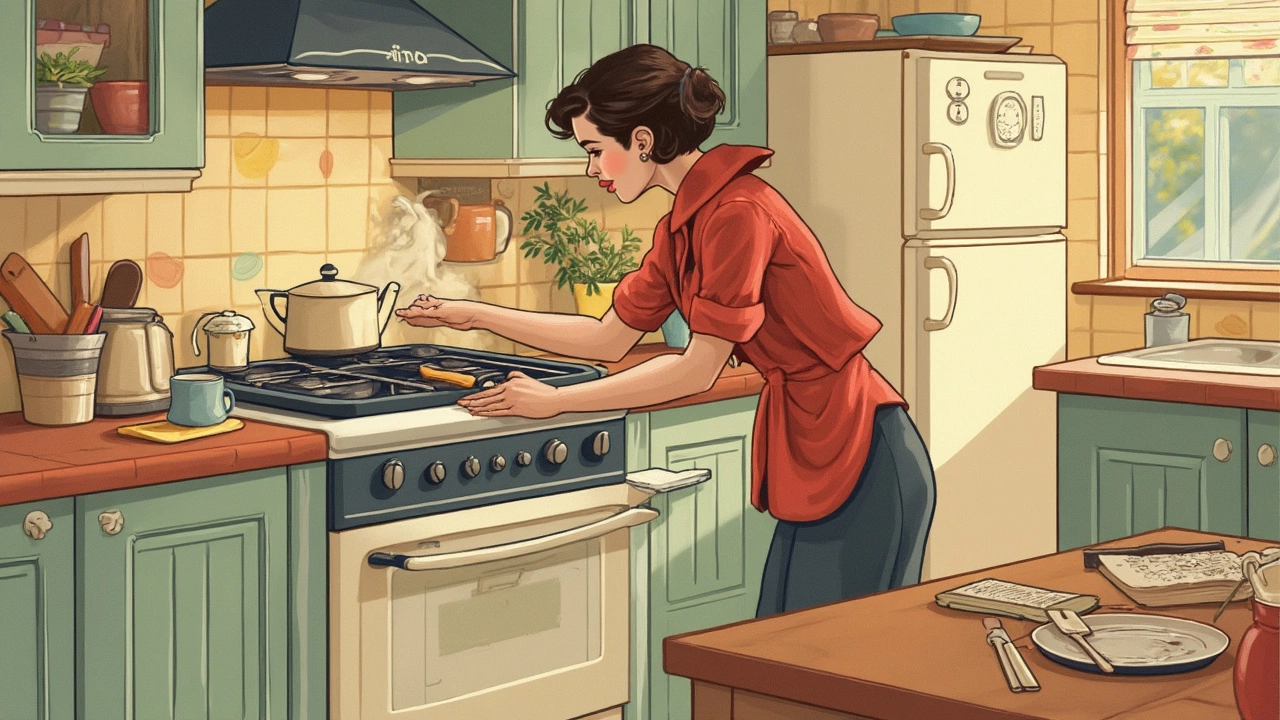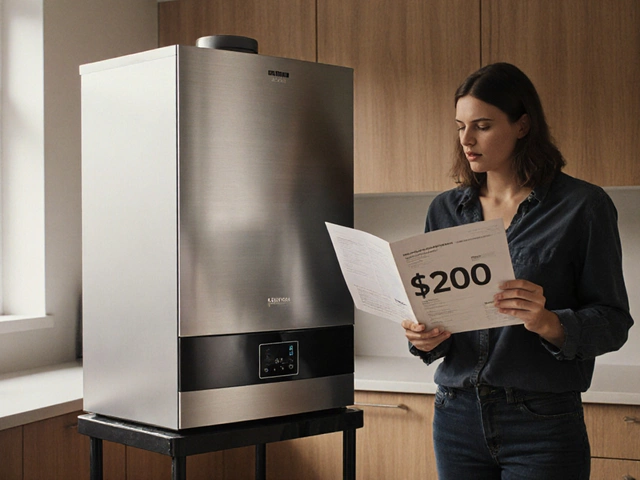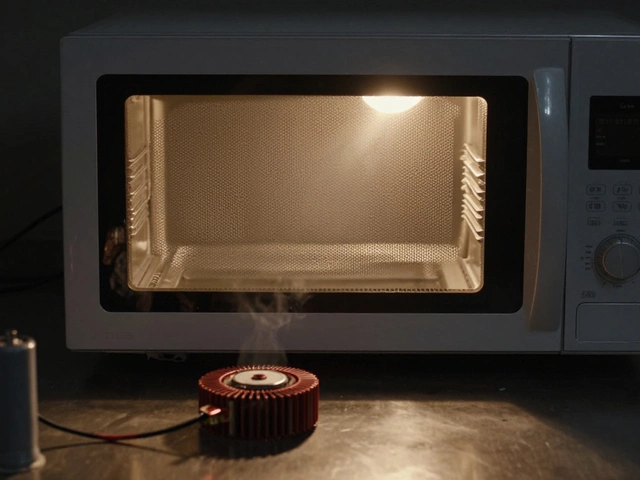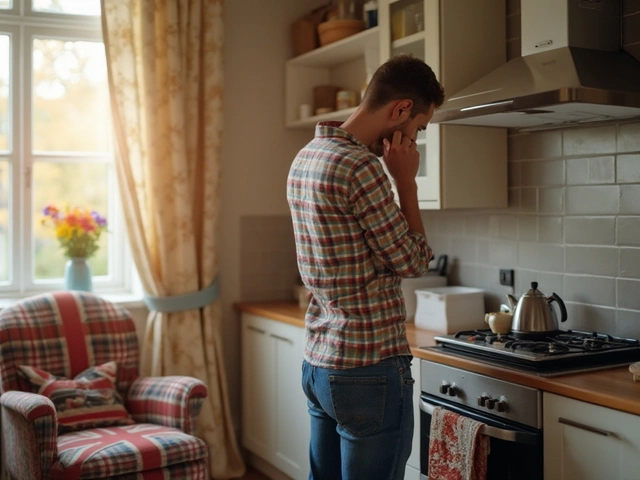It's that moment when you're about to serve the perfect dish, and suddenly - your electric oven stops working. Frustrating, right? But hang on, it might not be as daunting as it seems. Often, the reasons are fairly straightforward, and you might manage to fix them yourself without waving goodbye to a small fortune. Let's explore what might have gone wrong.
First, check if there's a power issue. It's surprisingly common for ovens to be mistakenly unplugged or for circuit breakers to trip without notice. Make sure your oven is properly plugged in and take a look at the circuit breaker. Give it a reset and see if that does the trick.
If power isn't the culprit, you might be dealing with blown fuses. Electric ovens often have their own fuses separate from your main electrical panel. Locating these and doing a quick check might reveal the issue. Remember, safety first—always switch off the power before tinkering with anything electrical.
Thinking more technically? Internal components like the heating element or thermostat might be faulty. If you're comfortable taking a slight DIY turn, checking these parts can help identify whether they need replacing. If not, this could be where you call for backup—let the pros handle it.
- Common Causes of Sudden Oven Failure
- Troubleshooting Tips
- When to Call a Professional
- Preventive Maintenance for Longevity
Common Causes of Sudden Oven Failure
Ever wondered why your trusty electric oven suddenly calls it quits right when you need it the most? Let's break down some of the usual suspects that might be at play.
Power Disruptions
Yeah, it might sound simple, but one of the most common reasons for an electric oven repair is usually a power issue. There's always the possibility you could be dealing with a tripped circuit breaker or a blown fuse. A power surge might have caused it, or maybe someone accidentally switched it off. Double-check that your appliance is plugged in and that the power is actually on.
Blown Fuses
Inside your oven, several fuses ensure everything runs smoothly. If one of these fuses blows, it can cause the whole system to shut down. These aren't like the large, main fuses in your house; they're smaller and located in different parts of the oven. Keep an eye out; replacing a fuse could be your quick fix.
Faulty Heating Element
If the oven’s heating elements break, that means no more heat, and without heat, you're not cooking anything, period. You can usually spot this if the elements look charred or cracked. It's a good idea to test these regularly, ensuring they warm up as expected.
Malfunctioning Thermostat
The thermostat is crucial for maintaining the right temperature. If it misreads numbers, your oven can overheat or not heat at all. It's one piece that might be worth inspecting or getting a professional to check out every so often.
Wiring Problems
Faulty or damaged wiring can keep your oven from functioning, too. This isn't a world most of us are eager to explore, so if you suspect electrical mishaps beyond a fuse or power cord, it's smart to call in a professional. Safety and precision are vital when dealing with wires.
By understanding these potential causes, you’ve equipped yourself with a checklist that can help troubleshoot when your electric oven seems to stop working out of the blue. It's all about knowing where to begin, and hopefully, one of these fixes gets your trusty appliance back on track.
Troubleshooting Tips
Before you dial up for repair services, let's walk through some basic troubleshooting tips that might save you time and money. Your electric oven might not require a professional touch if it's something you can quickly handle yourself.
Check the Power Supply
First things first, make sure your oven is getting power. This seems basic, but you might be surprised how often it gets overlooked. Check if the oven's electrical cord is securely plugged into a live outlet. Sometimes, outlets can be turned off through wall switches. Also, check the circuit breaker or fuse box. If the breaker has tripped or a fuse is blown, switch it back on or replace the fuse accordingly.
Inspect the Internal Fuses
Your oven might have internal fuses that handle specific components like heating elements or lights. Consult your oven's manual to find fuse locations. If you find blown fuses, replace them with ones of the exact rating.
Heating Element Check
If the power is fine but your oven isn’t heating, the culprit could be the heating element. If it looks burnt or damaged when you open up the oven, it likely needs replacing. Check for continuity using a multimeter if you're comfortable with that.
Test the Temperature Sensor
A faulty sensor can mess up your cooking. It should have continuity. Disconnect the sensor and test using a multimeter. If the readings show an open circuit, it’s time for a new sensor.
Use of Digital Error Codes
Many newer ovens have digital displays that show error codes when there’s a problem. Consult your oven's manual to decode what these mean. They are often very helpful in diagnosing the specific issue your oven might have.
Electronic Control Board
If your oven has stopped altogether, the electronic control board might be at fault. This one's a bit tricky and if you suspect this is the problem, it might be better to call in the pros unless you're super handy with electronics.
Keep these tips in mind, and you might just bring your oven back to life without needing a repair service.
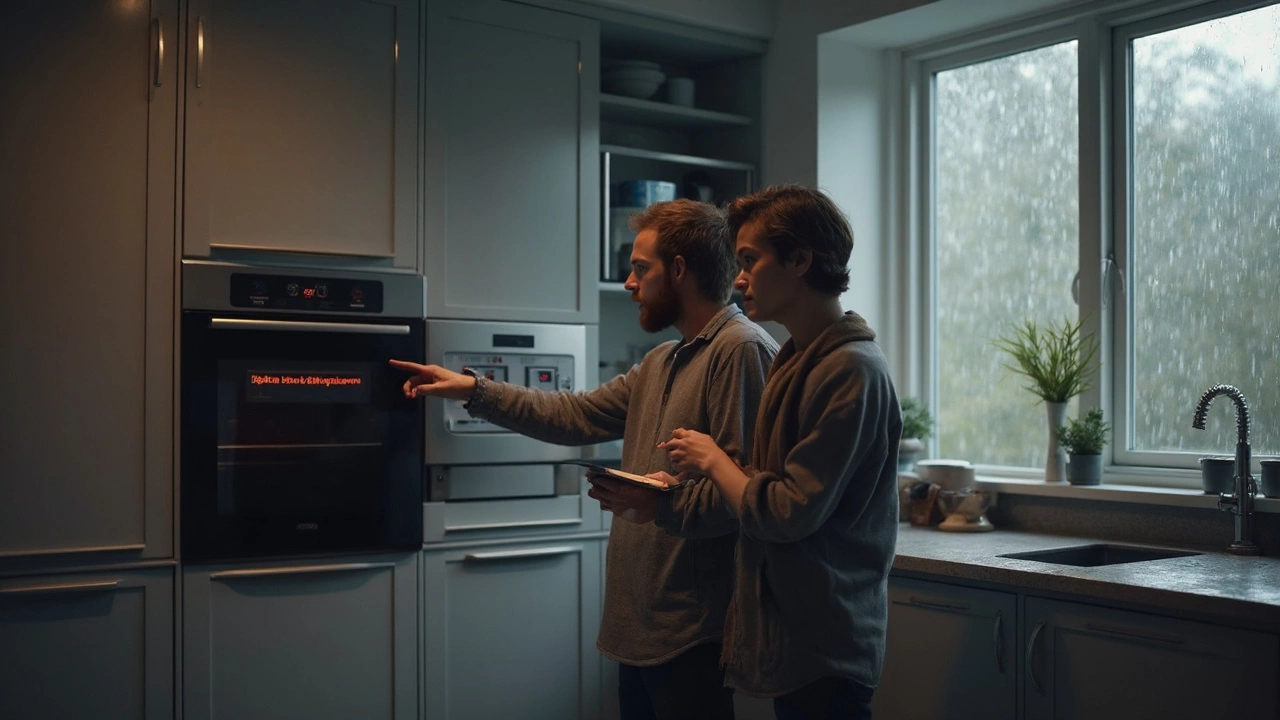
When to Call a Professional
Alright, so you've tinkered a bit, but your electric oven still isn't cooperating. When should you throw in the towel and call in the experts? Here’s the scoop.
If your oven's issue is a bit beyond basic troubleshooting, like a faulty heating element or broken thermostat, it's time for the pros. These parts can be tricky and often require specialized tools to replace. Attempting a fix without the know-how can lead to more headaches and could even void your warranty.
Strange Noises
Hearing any odd buzzing or rattling? That could indicate an electrical problem, possibly with the oven's wiring. Electricity isn't something to mess around with without proper experience, so getting professional help is a smart move here.
Error Codes
Some ovens come equipped with displays that show error codes when things go awry. While you might have a manual showing what each code means, the solutions can be complex. These situations often require technicians who understand your oven's circuitry thoroughly.
Persistent Issues
If the problem keeps popping up even after trying all the DIY remedies, persistent issues might mean there’s a deeper, underlying problem. Professionals can perform a thorough diagnostic to root out the cause.
Warranty Concerns
Another thing to consider is that tinkering too much while your appliance is on warranty could void it. Letting a licensed technician handle the repairs not only preserves the warranty but might save you some dollars in the long run.
Here's a quick glance at when to step back and call the experts:
- Faulty heating elements or thermostats
- Electrical issues or wiring problems
- Error codes on your oven's display
- Problems that keep coming back
- Concerns about voiding your warranty
In the world of oven repair, knowing when to call in the cavalry can save you time, money, and perhaps a little sanity too. So, don’t hesitate to reach out when you hit a wall!
Preventive Maintenance for Longevity
Your electric oven is an essential player in your kitchen team, so keeping it in tip-top shape can save you from unexpected breakdowns. Let’s chat about some everyday maintenance tips to keep your oven cooking like a champ.
Regular Cleaning
Cleaning might not be fun, but a grimy oven can mess with performance. Every few months, give your oven’s interior a good clean. Simply remove racks and wipe down the surfaces with a mild detergent, then rinse thoroughly. Avoid using harsh chemicals, as they can damage the oven's coating.
Check the Seals
Oven door seals ensure heat stays trapped inside while cooking. If your oven is taking longer to heat up, the seal might be worn. A quick visual inspection should tell you if it's time to replace it. Make sure they're snug and intact to keep your oven efficient.
Care for the Heating Elements
The heating elements are crucial for cooking. Make sure they're free from grease and grime. Over time, debris can accumulate, leading to uneven heating or even burnout. A clean, damp cloth should do the trick—just ensure the oven is cool and unplugged first!
Mind the Indicators
If your oven has warning lights or error codes, pay attention to them. They're there to alert you to potential issues. Checking the manual for explanations can save you time and trouble, letting you tackle little problems before they become big headaches.
Keep it Covered
A simple oven cover can prevent dust accumulation and potential damage, especially if your oven sees less action. Plus, it provides a neat look to your kitchen.
By following these simple steps, you can extend the life of your electric oven and avoid those sudden repair jobs. Remember, a little care now can keep your kitchen humming with delicious delights longer!
